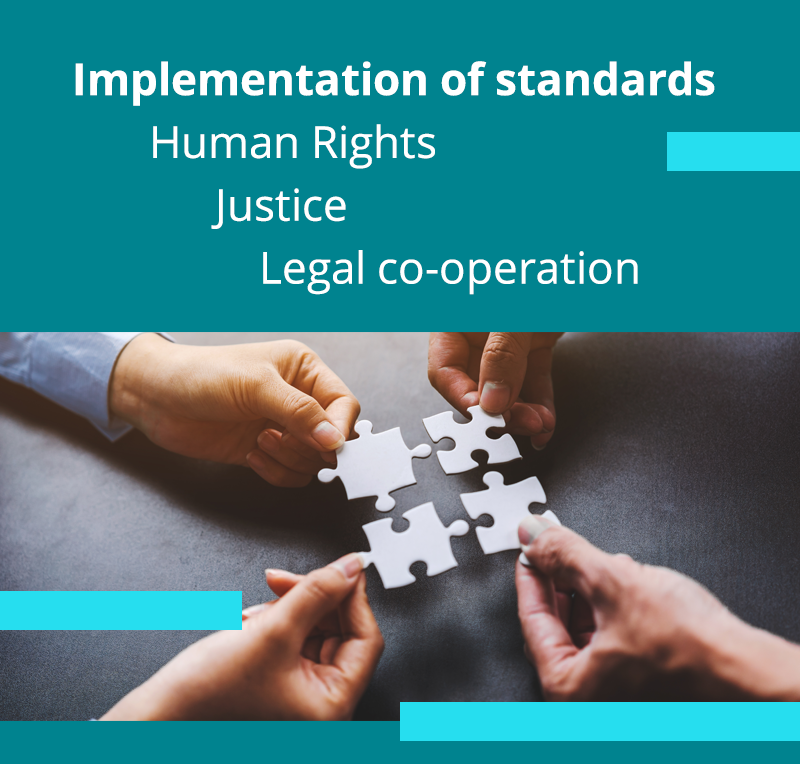Support for the Implementation of Judicial Reform in Serbia

The main objective of the project is to advance reforms of the justice system in Serbia by supporting the development of the legislation and practices relevant for the issues of judicial independence, accountability, access to justice, judicial training and harmonisation of judicial practice.
Main partners and beneficiaries: Target groups of the project are the institutions in Serbia that are in charge of the judicial reform policy making and implementing, namely: the Supreme Court of Cassation, the High Judicial Council, the Republic Public Prosecutor's Office, the State Prosecutorial Council, the Ministry of Justice, the Administrative Court, the Commercial Appellate Court, the Misdemeanour Appellate Court, appellate courts in Belgrade, Kragujevac, Nis and Novi Sad, the Higher Court in Belgrade, the Judicial Academy, professional associations of judges and prosecutors. The project will consult the civil society and the media and create synergies with these actors. When relevant these will be involved in activities in particularly in certain aspects of judicial training.
The project is structured in four components :
Component I aims at improving the legal framework, legislation and regulations, in order to facilitate judicial reforms in line with European standards by providing advice on improving the national legislation, practices and regulation, as well as institutional capacities of judicial institutions
Component II focuses on consolidating judicial system through enhanced management practices to achieve effective and consistent delivery of judicial services, to better serve the needs of end beneficiaries.
Component III aims at advancing the quality of justice through enhanced judicial training and increased compliance with European standards by legal professionals.
Component IV focuses on increasing harmonisation of judicial practice, hence improving legal certainty.
The workplan of the project is composed of a balanced mix of assessments, research, expert intervention, training, outreach events, and specialised working groups, etc.
Project information
- Duration: 36 months (1 January 2022 – 31 December 2025)
- Country: Serbia
- Budget: 3,334,000.00 €
- Funding: EU (90%) and Council of Europe (10%)
Project documentation
Brochure on the Judicial Reform Conference, Belgrade, 21 February 2023 ENG- SRP
Mechanisms for harmonisation of prosecutorial practice and prevention of conflicting case law ENG- SRP
Conference report on the role of distinguished legal professionals in judicial councils European Union ENG- SRP
Comparative analysis of the normative framework governing court and prosecution office staff in selected council of Europe member states Identifying efficient human resource management practices in courts and prosecution offices ENG- SRP
Analysis of case law harmonisation mechanisms with recommendations for promotion ENG- SRP
Overview of European standards on undue influence in the judiciary ENG- SRP
Continuation of the training of judges on ethics and integrity in cooperation with the Judicial Academy
The second and third training events for newly elected judges on ethics and integrity were organised in Belgrade in cooperation with the Judicial Academy, with the support of the joint EU/CoE project “Support for the Implementation of Judicial Reform in Serbia”. The training sessions were...
Training of Judges on Ethics and Integrity in Cooperation with the Judicial Academy
With the support of the joint EU/CoE project "Support for the Implementation of Judicial Reform in Serbia", a training session for the first group of newly elected judges was organised in cooperation with the Judicial Academy in Belgrade. The training was arranged at the request of the High...
Ethics and Disciplinary Proceedings Training for Newly Appointed Judges Held in Kragujevac
The Council of Europe supported the Judicial Academy in organising a training session on ethics and disciplinary proceedings for newly appointed judges. Over the course of two days, an expert from the Council of Europe presented key principles and ethical issues essential for the professional...



